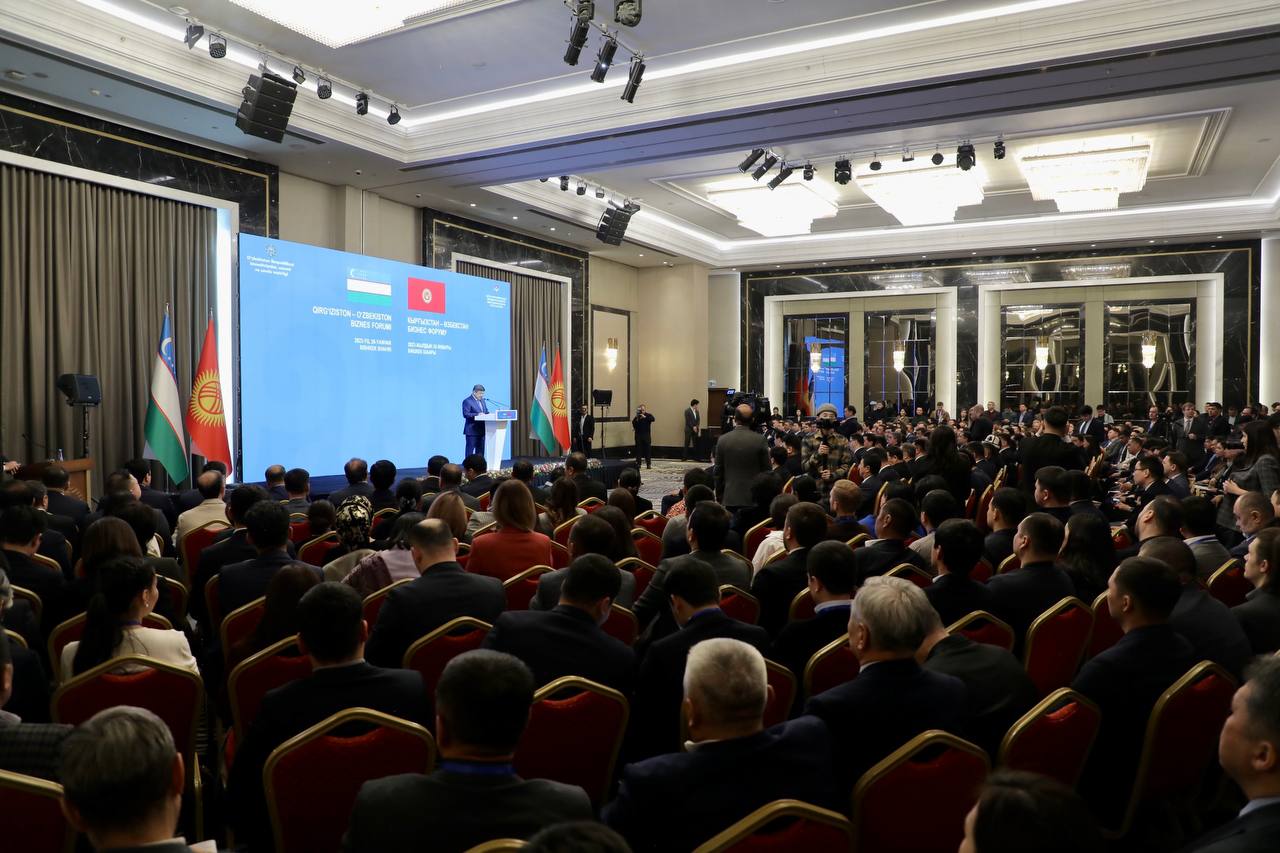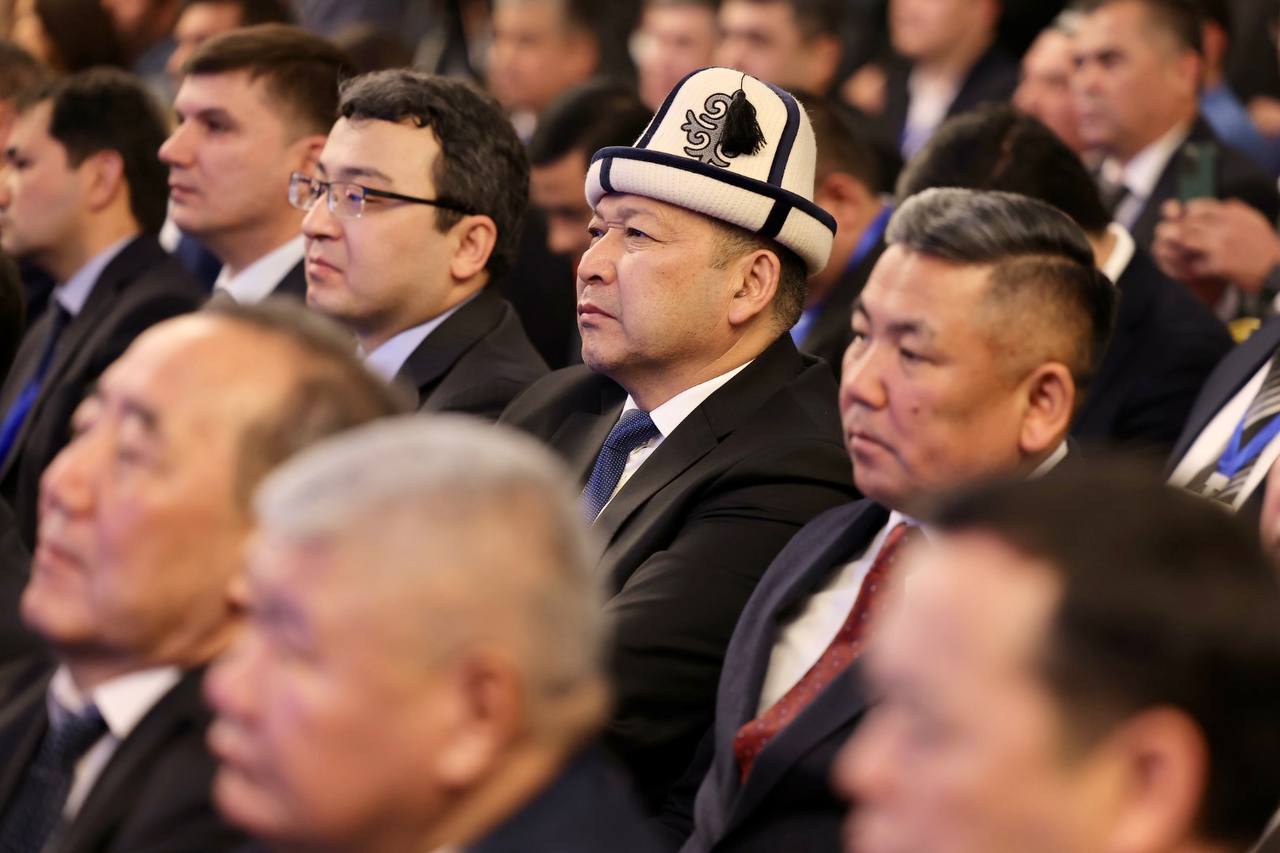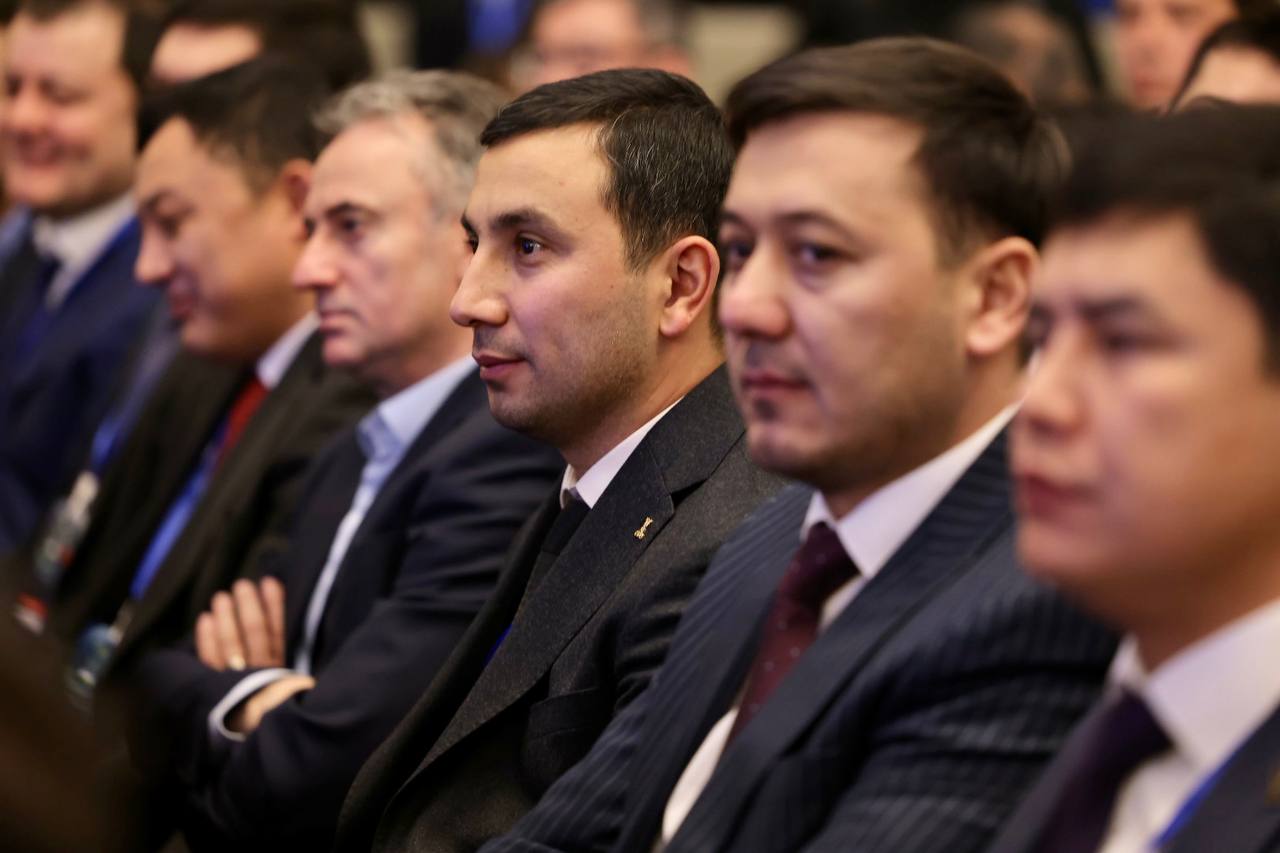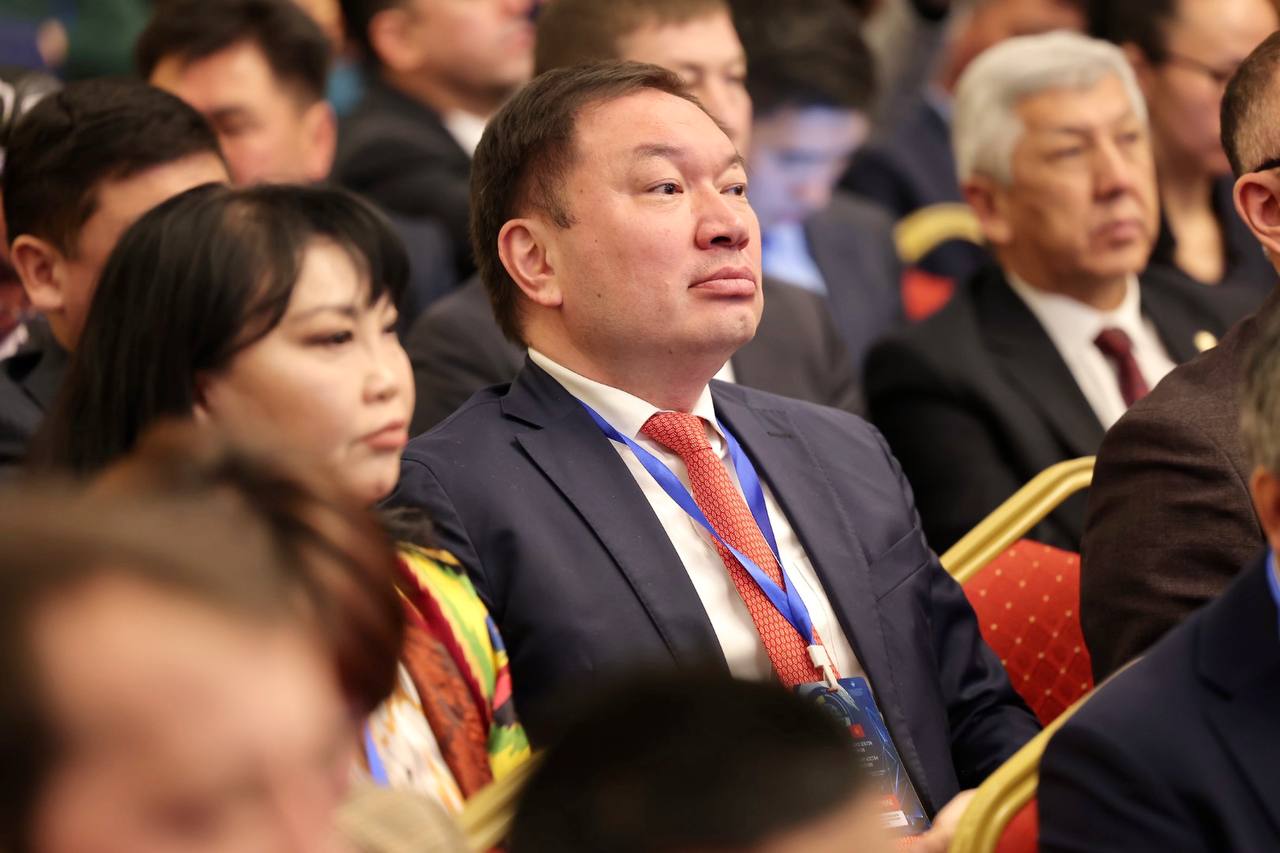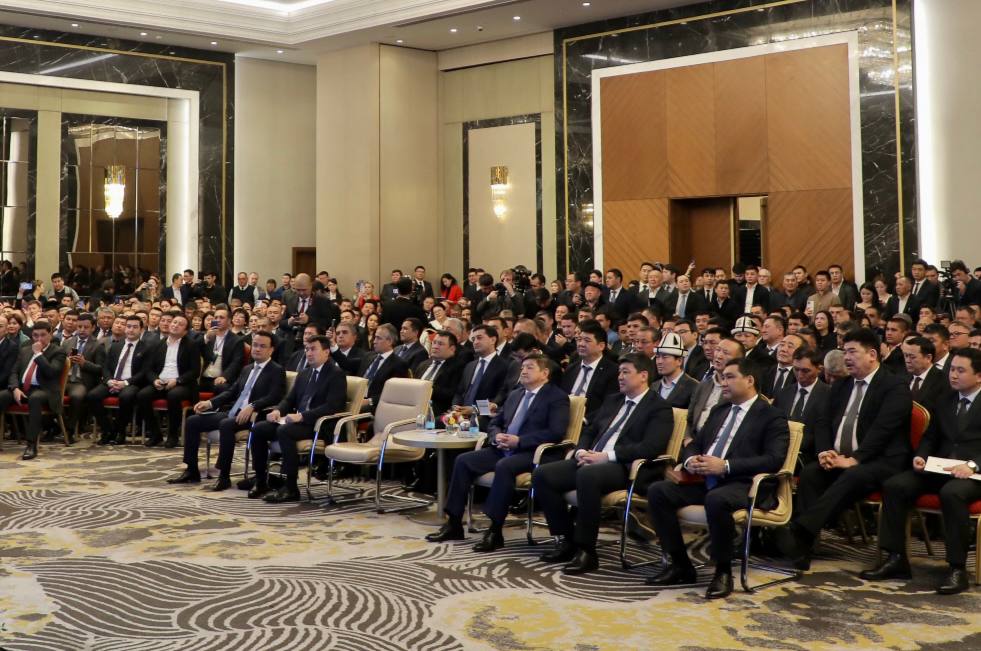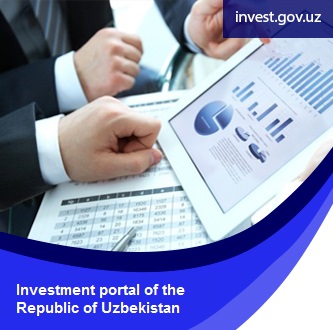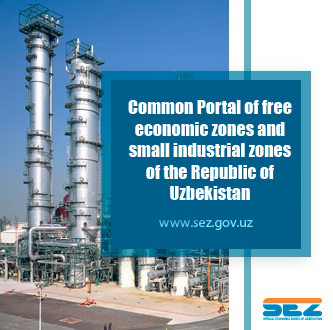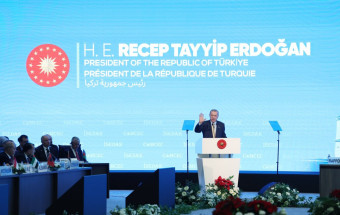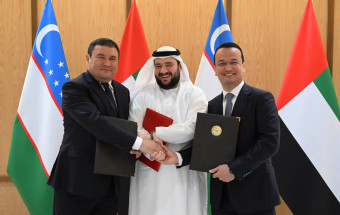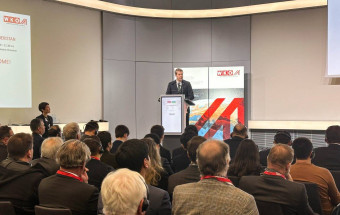Kyrgyzstan-Uzbekistan Business Forum: New Facets of Bilateral Cooperation
On 26 January, on the eve of the state visit of the President of the Republic of Uzbekistan Sh.M.Mirziyoyev to the Kyrgyz Republic, the Kyrgyzstan-Uzbekistan Business Forum was held in Bishkek. The Forum was also attended by members of governments, heads of relevant ministries, departments, industry associations, regional administrations, as well as more than 350 representatives of the business circles of the two countries.
At the opening ceremony of the Forum speakers stressed that the relations between Uzbekistan and Kyrgyzstan over the past five years have reached a qualitatively new level.
In particular, the trade turnover between the two countries during this period increased 7 times to $1.2 billion in 2022. At the same time, as it was announced, the economies of Uzbekistan and Kyrgyzstan have sufficient potential to overcome the $2 billion mark in the near future, by increasing mutual supplies of cement, coal, non-ferrous metals, agricultural and textile products, chemical fertilizers, household and commercial appliances, as well as pharmaceuticals.
The development of the industrial cooperation has also been identified as a priority area of bilateral cooperation. Compared to 2016, the number of joint ventures increased 8 times to 320 units. Agreements have already been reached on the implementation of new projects in the production of automotive and commercial equipment, the launch of joint textile enterprises, the production of chemical products, as well as the introduction of electricity metering systems. Major landmark projects are being worked out taking into account the complementarity of the two economies, including the development of deposits of iron, kaolin, travertine, basalt with the subsequent manufacture of products with high added value.
The competitive advantages of both economies are planned to be mobilised in agriculture to facilitate the development of intensive gardens and modern greenhouses, joint cultivation of potatoes, corn and meat, and the creation of joint livestock complexes.
A special role during the Forum has been assigned to strengthening interregional cooperation. Thanks to the creation of the Council of Khokims and heads of administrations of border regions, as well as the establishment of twinning relations between Andijan and Osh, Namangan and Jalal-Abad, Ferghana and Batken regions, over the past 3 years, the trade turnover between these regions has doubled. Joint work will continue on conducting business missions, exhibitions and forums, and on realizing the tourism potential of the regions of the two countries.
The signing of the historic trilateral Agreement on the implementation of the China-Kyrgyzstan-Uzbekistan railway construction project at the SCO Summit in Samarkand last September was noted. The intensification of work on this strategic project is designated as a priority area of cooperation in the field of transport and logistics. This will allow to diversify traditional transit routes and expand cargo transportation in the Central Asian region.
In order to organize systemic work and create conditions for continuous interaction between entrepreneurs of the two countries, a special online platform will be developed, which will allow business representatives to conclude trade contracts, find ready-made industrial cooperation projects and select business partners.
Within the framework of the business forum’s agenda, panel discussions and a round table were held, during which participants were able to discuss in detail the prospects for economic cooperation, business cooperation and issues of regional integration. The session of "B2B" negotiations that followed soon focused the attention of entrepreneurs and investors on the possibility of implementing new joint projects, allowed determining the formats and intensity of further interaction in order to reach firm agreements.
As a result of the Forum, a solid package of agreements totaling more than $1.6 billion was signed in chemical, electrical, automotive, and textile industries, agriculture, production of construction materials, leather products and other areas.


